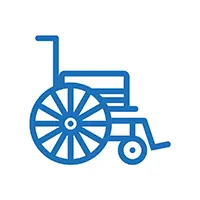Everyone needs a rest sometimes, and that’s what holidays are for. But they can also be a stressful time for parents and caregivers as they try to keep children entertained.
Here are some ideas about how to reduce the stress of caring for children over the holidays.
Find a holiday programme
If you’re struggling to keep kids entertained, a holiday programme is a great way to take the load off you. Holiday programmes not only give parents and caregivers a break, they provide fun and engaging opportunities for children.
The Family Services Directory provides a list of holiday programmes for children. You can search for holiday programmes by region, or by the type of programme you are looking for.
Search for holiday programmes (external link)
Many holiday programme providers offer programmes that cater for children with disabilities. The family services directory lists many options for each region.
Search for holiday programmes that cater for disabled children and youth (external link)
Subsidised childcare programmes
You have to pay for most childcare and holiday programmes, but the OSCAR (Out of School Care and Recreation) scheme helps lower the cost for some programmes.
The Ministry of Social Development approves certain programmes that can be used as part of the OSCAR scheme. To find them, search the Family Services Directory and filter the search results to find OSCAR programmes.
Search for OSCAR-affiliated holiday and childcare programmes (external link)
Not all OSCAR-accredited programmes have staff trained to work with disabled children and young people, so contact the ones in your area to find out if they can provide for your child’s requirements.
Learn more about the Out of School Care Network (external link)
Find sports and recreation activities
Sports are a great way for kids to burn some energy, make friends and learn new skills.
The Halberg Disability Sport Foundation provides support to disabled children and young people who want to get involved in sport. Its website provides a list of disability sports and contact details for each one.
Search for inclusive sports (external link)
Sports NZ provides a directory of national recreation organisations, such as Scouts, Girl Guides and Boys’ Brigade.
Find a national recreation organisation (external link)
Get out and about
Taking your family to an event or activity takes a lot of the pressure off you as the parent or caregiver to provide all the entertainment!
Check out Firstport’s events page for disability-related activities happening near you.
We list events submitted by Disability Information Centres around the country. You can filter the events by region to see what’s on in your area.
Children on the autism spectrum
For children on the autism spectrum, the change in routine that comes with holidays can be stressful for them. That, in turn, can cause stress for parents and caregivers.
Creating a routine, planning for success and encouraging them to pursue their interests are some ways to engage a child on the autism spectrum during the holidays.
It's also important to choose the right environment and time for certain activities. Children on the autism spectrum often like to do the same things as any other child, but they might have sensory challenges that make it difficult for them to be in loud, chaotic environments. Look for activities in your area that hold sensory sessions.
Learn more about making holidays fun for children on the autism spectrum
Ask others for help
If it’s all getting a bit much, don’t be afraid to ask others to help.
Try to be specific about what you need help with. Do you need someone to take the kids for a few hours to give you a break? Would you like to have a meal prepared for the family? Do you need help with transportation?
It’s natural to want to take care of things ourselves, but sometimes we need to ask for help for our own sanity. It can be difficult, but it’s worth it if it gives you greater wellbeing.
Read other ideas about looking after yourself as a carer
Last updated on Tuesday, 28 November 2023














